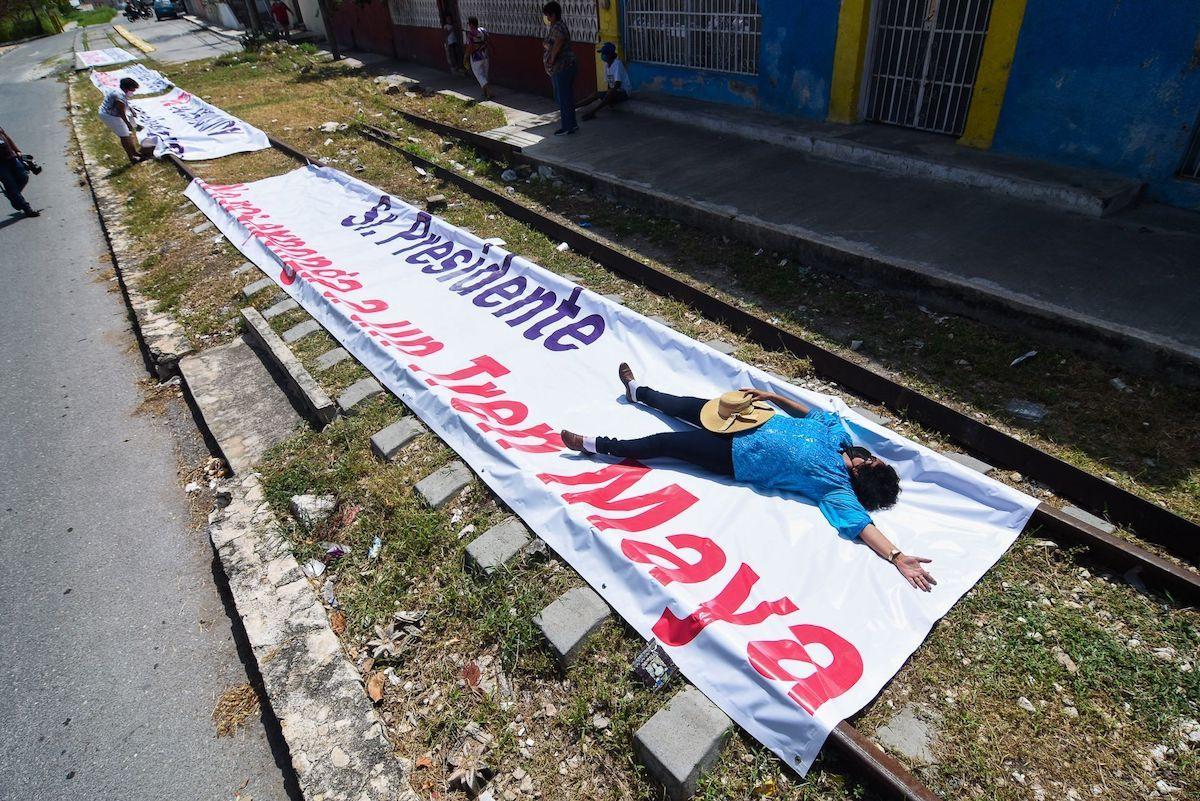For some time now, we have seen struggles on different fronts to demand rights and address a variety of environmental problems that the country is going through. Citizen groups face environmental mismanagement by private companies, individuals and governments at different levels and in different areas. Often the demands of communities and groups to maintain natural resources in good condition and without pollution, such as water, fishing, air, soil, are mixed with the search for a fairer distribution of the benefits that nature gives us.
In recent months, government decisions have been taken that represent another great challenge for people concerned about their environment. The decision of President Andrés Manuel López Obrador to, first, issue an Agreement published on November 22, 2021 to establish that priority works of the federal government be classified as national security and started without complying with permits and authorizations for up to 12 months, dealt a strong blow to these acquired rights. On the one hand, they remove them from the scope of civil authority, because they are “security”, affecting the capacity of groups to dialogue with the government, in an increasingly militarized country.
Second, since it makes it possible to postpone authorizations and permits, for example, for environmental impact, to works that the government decides, it does not allow protective resources to be exercised, such as protection or the request for a public consultation for the approval process of an Environmental Impact Statement, or the free and informed consultation established by Convention 169 of the World Labor Organization for works affecting indigenous communities. Although they can be resources with many deficiencies, they are, after all, one of the few that communities and social groups had to face very unequal forces in the State or large business consortiums.
A few weeks ago, its consequences materialized when, under the constant protection of citizen groups and civil organizations concerned about the environmental impacts of the construction and operation of the Maya Train in its section 5, it was decided to declare the work as national security by the National Security Council, which is managed by the federal executive and presided over by the president of the republic.
One of the reasons for treating the Maya Train as national security is, as argued, to avoid the intervention of environmental groups, which apply delaying tactics (read amparos) that hinder the progress of its construction. This limits the possibility that groups opposed to the work (regardless of their reasons) can file their demands and defend what their judgment affects them, using the institutional channel and the legal framework.
On this point, the National Security Act is very explicit in cases where this category can be used for a state of emergency. National Security refers in this law to “actions aimed at maintaining the integrity, stability and permanence of the Mexican State.” It is not understood how the use of the mechanisms provided by law and the Constitution to defend rights and guarantees can put the Mexican State at risk. The same National Security Act mentions that it is governed by the principles of respect for fundamental rights of protection of the human person and individual and social guarantees.
Faced with these excesses of the executive branch that go beyond the current legal framework, the judiciary must exercise its powers of counterweight and protect human rights and individual guarantees against abuses of power. In a democratic regime of law, it is worth dissent and there are mechanisms and counterweights to protect rights from State abuses, which has been reversed with this action of the executive branch around the Mayan Train. If allowed to pass, a very dangerous precedent will be created to put presidential power above the protection of constitutional rights and guarantees.
The groups and organizations that work in that great conglomerate that is the environmental agenda also have a great challenge. They must oppose the above narrative of changing the meaning of the laws to do the will of the current ruler. This is where the dominant political leadership in the government retaliates when their voices are raised and they question the validity of their projects and decisions. However, not to do so would help to allow this to be normalized and to further lose our capacity as citizens to protect our environment and defend our rights.
Finally, the federal executive and the president of the republic himself must safeguard the rights and guarantees of individuals, even if they are from antagonistic groups and with opinions and interests different from their own, reversing this authoritarian drift. It is worth remembering that in 2020 Mexico ratified the Regional Agreement on Access to Justice in Environmental Matters in Latin America and the Caribbean, better known as the Escazú Agreement. In this agreement, the Mexican State committed itself to guaranteeing all people the right to access information, to timely participation in decisions affecting them and their environment, and access to justice in environmental matters when their rights have been violated. A first step by the Mexican government to show that this commitment made in the Escazú Agreement is serious would be to validate the right to participation and access to justice in such an emblematic and important work.



Comentarios (0)